|
|
September
25,
2007
STEPHEN
DUNCOMBE: Taking
Celebrity Seriously
An interview with Stephen
Duncombe author of Dream: Re-imagining
Progressive Politics in an Age of Fantasy. Duncombe will discuss his
latest essay "Taking Celebrity Seriously" — a short exploration
of how activists are using the banalities of celebrity culture strategically
and an argument for why progressives need to fight on this new terrain instead
of merely wishing it away with a sniff of disapproval. The Students for a Free
Tibet video (right) is just one example of how progressives are rethinking celebrity.
As Duncombe has said, "The topography on which we fight today is the ephemeral
ground of fantasy and desire, celebrity and spectacle. To wish it were different
is not an option; to learn how to use it is a political necessity."

September
18,
2007
SIERRA
LEONE'S REFUGEE ALL STARS
An interview with Zach
Niles the co-director and producer of Sierra
Leone's Refugee All Stars. One of the most celebrated documentaries
of the past year, Sierra
Leone's Refugee All Stars tells
the remarkable story of an inspiring group of musicians who form a band
while living in a West African refugee camp. Set against the backdrop
of a brutal civil war, the film details the group's heroic stories of
survival and their daily struggle to keep hope and music alive. The war
sent hundreds of thousands of ordinary Sierra Leoneans fleeing to refugee
camps in the neighboring West African nation of the Republic of Guinea.
That’s where the remarkable documentary Sierra
Leone’s Refugee All Stars begins. California-based filmmakers
Niles and Banker White were chosen to receive the 2006
CDS Filmmaker Award for their feature-length documentary.

September
11,
2007
KILLER OF SHEEP
An interview with Charles
Burnett the director of the classic film Killer
of Sheep — an examination
of the black Los Angeles ghetto of Watts in the mid-1970s through the eyes
of Stan, a sensitive dreamer who is growing detached and numb from the
psychic toll of working at a slaughterhouse. The film was shot on location
in Watts in a series of weekends on a budget of less than $10,000, most
of which was grant money. Finished in 1977 and shown sporadically, its
reputation grew and grew until it won a prize at the 1981 Berlin International
Film Festival. Since then, the Library of Congress has declared it a national
treasure as one of the first fifty on the National Film Registry and the
National Society of Film Critics selected it as one of the "100 Essential
Films" of all time. Burnett is also the director of My
Brother’s
Wedding. Shot in 1983, but never released due to unfortunate circumstances,
My Brother’s
Wedding premiered this
month at the IFC Center in New York.

August
28,
2007
MANDA
BALA
An interview with Jason
Kohn director of the documentary Manda
Bala (Send a Bullet) — an examination of corruption and class
warfare in Brazil as told through the stories of a wealthy businessman, a plastic
surgeon who assists kidnapping victims and a politician whose income relies on
a frog farm. Featuring interviews with kidnappers, victims of kidnapping, and
the people who profit from both, the film portrays the "tragic domino effect
that has reshaped the face of [Brazil] and created an entire industry built on
corruption," according to Sundance.

August
21,
2007
SELF
MEDICATED
An interview with Monty
Lapica director of Self
Medicated. Born and raised in Las Vegas, Nevada, Lapica
moved to Los Angeles after his high school graduation to pursue a lifelong
goal of becoming a filmmaker. During his time at Loyola Marymount University's
School of Film and Television, Lapica began outlining what would later
become his first feature film, Self Medicated, which he wrote, produced,
directed and acted in. Based on true events, Self Medicated takes place
on the edges of Las Vegas, where a 17-year-old's life is spiraling
out of control, descending into a world of drugs and violence. It is
the most award-winning independent film of the year, garnering 39 international
film awards.

August
14,
2007
LARRY
FLYNT: THE RIGHT TO BE LEFT ALONE
An interview with Joan
Brooker-Marks director of Larry
Flynt: The Right To Be Left Alone which will screen in Los
Angeles at the International
Documentary Association’s DocuWeek, August 17th - 23rd
at the ArcLight
Theater. Both
hero and villain, tireless civil rights advocate and purveyor of pornography,
the always controversial Larry Flynt is the subject of Brooker-Marks'
documentary Larry
Flynt: The Right To Be Left Alone. Delving beyond
Flynt's political career, the film offers an intimate glimpse into the
publisher's personal life, including the assassination attempt that left
him paralyzed, and his first wife's battle with AIDS. Ultimately, Brooker-Marks
delivers the full, unvarnished story of one of America's most unlikely
defenders of civil liberties. TV writer Brooker-Marks, who directed two
docu shorts (We Got Us, The Loud Ladies of South Fork) and Flynt and will
do a Q&A on Tuesday, August 21st following the 7:20 p.m. screening
at the ArcLight
Theater.

August
7,
2007
CHOPS
An
interview with Bruce
Broder director of Chops,
the story of a group of kids, born with extraordinary musical ability,
who learn to make the most of their gifts in an acclaimed public school
jazz program in Jacksonville, Florida. From their early, squeaky scales
to their soaring improvisational solos, we have a front-row seat for
their fascinating transformation. The film culminates at the Essentially
Ellington Festival, the annual competition of high school jazz bands
from across the country hosted by Jazz at Lincoln Center and its artistic
director Wynton Marsalis. Chops will
screen at The
International Documentary Association's DocuWeek in Los
Angeles this month.

DEJA
VU
An interview with Chris Balaschak, Ph.D. student, UCI Visual Studies Program
who programmed the UCI Summer film series, Déjà Vu.
Featuring
Blow-Up,
Memento, La Jetée, Vertigo and Mulhulland Dr. the series screens Thursdays
in
August
at
7:00
pm in HIB 100.

July
31, 2007
HEAR AND NOW
An
interview with filmmaker Irene
Taylor Brodsky director
of the documentary Hear
and Now. In
this deeply personal memoir, filmmaker Brodsky documents
her deaf
parents' complex decision to leave their world of silence
and undergo a dangerous surgery to get cochlear implants — the
only one of its kind that can restore a sense. At the age
of 65, Paul and Sally Taylor decided they wanted to hear
their first symphonies, hear their children's' voices, and
talk on the phone. How will this operation transform them,
their relationship with each other, and the deaf world they
might leave behind? This is a story of two people taking
a journey from silence to sound. The question is, what will
they make of it, and what might they gain — or lose

July
24, 2007
NO
END IN SIGHT
An
interview with Charles Ferguson, writer, director and producer
of No End In Sight — the first film of its kind to chronicle
the reasons behind Iraq’s descent into guerilla war,
warlord rule, criminality and anarchy. Based on over 200 hours
of footage, the documentary provides a candid retelling of
the events following the fall of Baghdad in 2003 by high ranking
officials such as former Deputy Secretary of State Richard
Armitage, Ambassador Barbara Bodine (in charge of Baghdad
during the Spring of 2003), Lawrence Wilkerson, former Chief
of Staff to Colin Powell, and General Jay Garner (in charge
of the occupation of Iraq through May 2003) as well as Iraqi
civilians, American soldiers, and prominent analysts.

July
17, 2007
MANUFACTURED
LANDSCAPES
An
interview with Jennifer
Baichwal director of Manufactured
Landscapes. Edward Burtynsky is internationally
acclaimed for his large-scale photographs of nature transformed
by industry. Manufactured
Landscapes – a stunning documentary by
award winning director Baichwal – follows
Burtynsky to China, as he captures the effects of the country’s
massive industrial revolution. This remarkable film leads
us to meditate on human endeavour and its impact on the planet.

July
3, 2007
THE
REAL DIRT ON FARMER JOHN
An interview with John
Peterson, the subject of the documentary, The
Real Dirt on Farmer John — a story that
parallels the history of American farming. Against
all odds, Peterson abandoned conventional chemical farming
and fought local hysteria to build a thriving organic and
progressive farm. But
Peterson is no laconic, Grant Wood hayseed with a scowl and
a pitchfork. Equal parts performance artist, writer and farmer,
Farmer John has been known to switch out of his overalls
into a leopard latex leotard with purple-feathered boa, hop
on a tractor and plow.

June
26, 2007
CHALK
An interview with irector / writer Mike
Akel of the film Chalk.
In the comedic style of The Office and the films of Christopher Guest, Chalk
is a portrait of life in the trenches of that most honorable and frustrating
profession... teaching. In a country where 50% of teachers quit within the first
three years, Director Akel provides a rare and realistic teacher's perspective
into their absurd, provocative and occasionally volatile world.

VISIT
MORE FILMSCHOOL ARCHIVES
| |


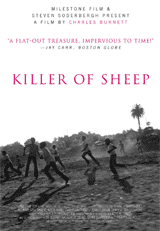
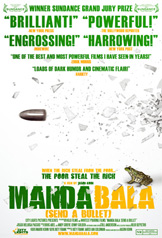
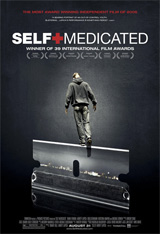
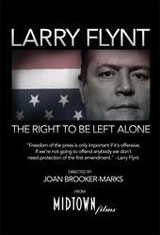
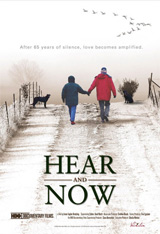
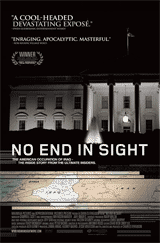
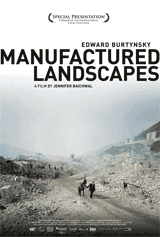
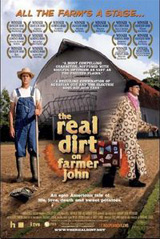

|
|











